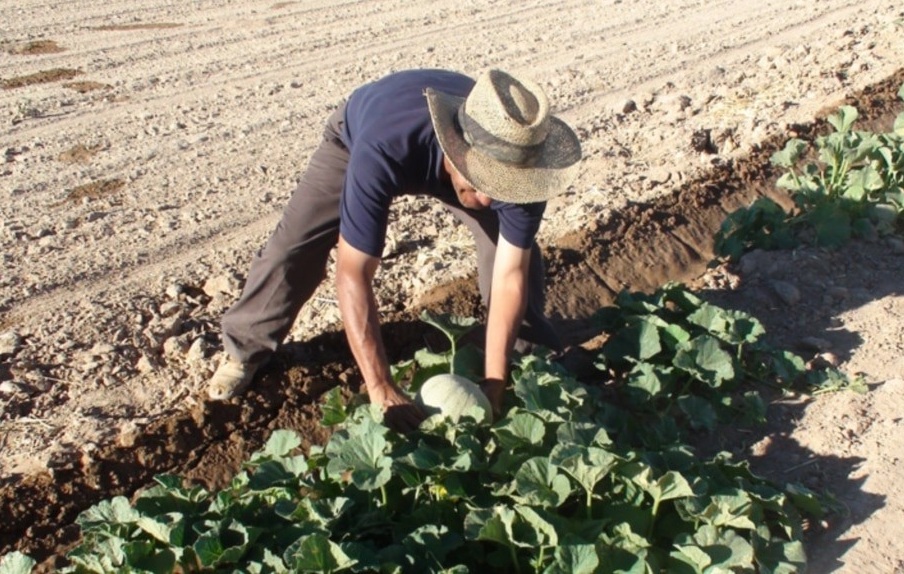Tashkent pays its debt to the Chinese with farmers' land
According to documents, hundreds of Uzbek farmers have handed over their property “voluntarily”, but many claim that this happened “under pressure from the internal affairs and prosecution authorities”. There are currently over 3,500 Chinese companies operating throughout the country.
Tashkent (AsiaNews) - The Uzbek government has seized the land of hundreds of farmers in the Andižan region, allocating it to state reserves to be granted to Chinese businessmen.
According to the documents, the Uzbek farmers handed over their properties ‘voluntarily’, but many claim that this happened ‘under pressure from the internal affairs and prosecution authorities’, and similar situations have occurred in the Kashkadarya region.
There are currently over 3,500 Chinese companies operating throughout Uzbekistan, giving the impression of major industrial development resulting from their investments, with the creation of many jobs and the implementation of new technologies.
However, several experts believe that Tashkent is opening its doors to Chinese entrepreneurs because of its large debts to Beijing and its inability to repay them. In this sense, Chinese expansion in Uzbekistan appears unstoppable, making the country an ‘economic prey’ of the Celestial Empire.
Chinese-made solar panels and drip irrigation systems have been installed throughout Uzbekistan for some time, and now a campaign appears to have begun to transfer irrigated and undeveloped land to the Chinese for their agricultural needs.
According to research by Ozodlik, several thousand hectares of land have been forcibly taken in Andižan, and this is irrigated land used for growing cotton and wheat. Under Uzbek law ‘On Agricultural Property’, farmers receive land from the state on a 40-year lease, and neither mayors nor prosecutors have the right to confiscate it, except by court order.
Farmers, as independent entities, can enter into agreements with any customer or join autonomous cooperatives for the production of agricultural crops, but these legal rights seem to remain largely on paper. In the three provinces of the Andižan region, where the land has been transferred to the Chinese, the police have forced farmers to hand it over on the direct orders of the khokimy, the local mayors.
One of the farmers in Ulugnar province says that ‘the inspectors came to my house and took me by force to the khokim, who ordered me to sign the deed of renunciation and hand over the land. When I refused, he started shouting that it was an order from the president and that if I didn't accept, I would end up in prison’. Some farmers have had all their land confiscated, others only part of it, between 20 and 25 hectares.
Last year, 2,200 hectares of cotton crops belonging to the Uzbek company Vodin Sanoat Fakhri were already handed over to the private Chinese company Tian Ye Plastik in Ulugnar. This year, 1,800 hectares have already been confiscated and given to the Chinese, for a total of 4,000 hectares, and workers in the region are concerned about the possible deterioration of the economy, as well as the conditions of those who have had their land taken away.
Many of them intend to organise a ‘counter-invasion’ to drive them out of their territory. It appears that the Chinese intend to grow other crops such as pepper, using various unknown chemicals. Some fear that ‘they will take over the whole country, and we will end up like the Uyghurs in Xinjiang’.
As a former Uzbek finance ministry official, Saparbaj Žubaev, said, ‘Uzbekistan is probably more interesting to China than Kazakhstan’, recalling how the Kazakhs opposed Chinese requests for a million hectares of land to grow soybeans in the past.
It was thought that the Chinese would do as they have done with companies in Siberia that cut down trees to bring the wood back to their homeland, leaving the land totally unproductive. The exploitation of the land does not seem to benefit local workers, and there are no official figures on how many Chinese are currently working in Andižan, although more than 10,000 Chinese are officially registered in the region.
Uzbekistan owes China .8 billion, and its most important creditors also include Japan with billion and South Korea with almost billion. The trade balance between Beijing and Tashkent for 2024 amounts to .5 billion, and it is clear that China is increasingly taking control of Uzbekistan.
11/08/2017 20:05







.png)










